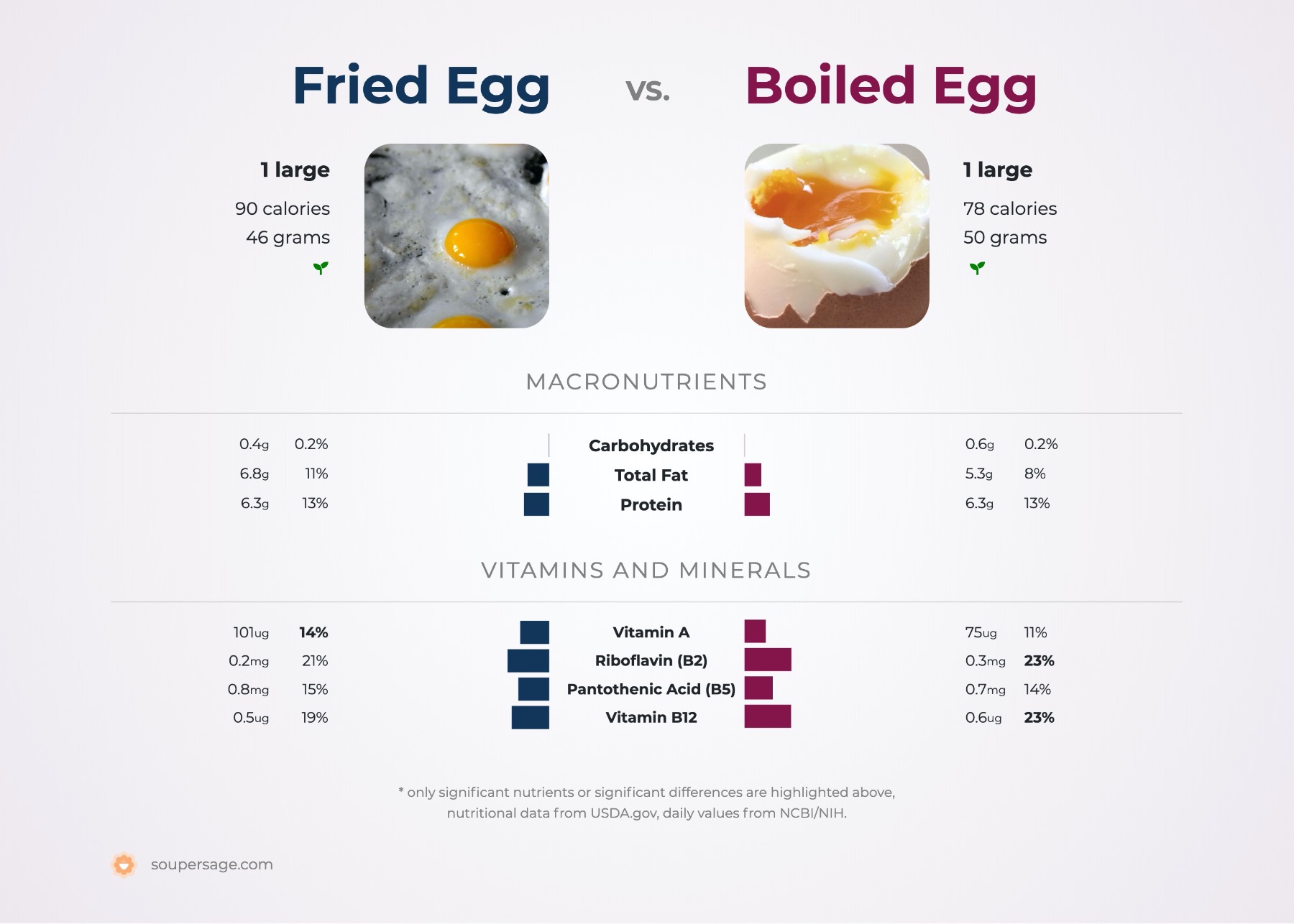
So, what we can infer from this is that, although your cooking method does not significantly affect the nutritional content of eggs per se, what you mix with them during preparation most certainly can.Įggs have essentially the same nutritional value, whether they are boiled, poached or scrambled without added ingredients.

A slice of cheese quiche - one-eighth of a 9-inch pie - contains nearly 570 calories, 16.7 g of protein and an astonishing 44 g of fat.

Frying these eggs in a tablespoon of butter adds approximately 100 calories and 11.5 g of fat. For example: two large, soft-boiled eggs contain approximately 155 calories, 12.5 g of protein and 10.6 g of total fat. This makes the egg proteins more easily digestible and absorbable. The nutritional value eggs cooked without added fat and other ingredients is much different from that of many popular egg dishes. Its much more healthy than a half boiled eggs which may have a risk of microbial contamination and fried ones. When, the egg proteins are heated during cooking, some of these bonds break and the proteins strands begin to separate from one another. Most nutritionists say : “Perfect nutrition comes from a hard boiled eggs. Well, lets discuss to find out the truth.

Most of us may have asked this question to ourselves, which egg recipe is actually healthy ? Is it hard boiled egg, or the half boiled egg or fried eggs (omlet)? Or eating raw is best option? Even we get confused about eating the egg yolk or egg white.


 0 kommentar(er)
0 kommentar(er)
